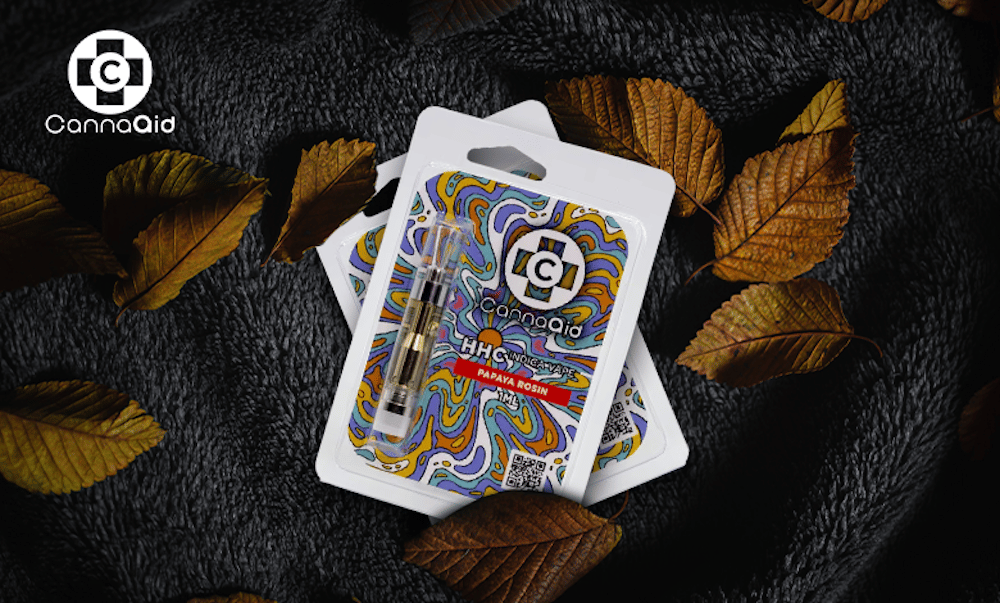What is the HHC Vape cartridge?
Hexahydrocannabinol is often available as a vape cartridge. “Hemp cartridges” are created by this process, and these cartridges often contain distillate of HHC. This type of extract contains synthetic HHC combined with a carrier substance like terpene-rich cannabis distillate.
Visit CannaAid to learn more about buying HHC vape cartridges online.
Different Types of HHC
Found that CBD can be converted into HHC or Delta-9 THC. To identify and name HHC, scientists used cutting-edge gas chromatography mass spectrometry.
- 9a-hydroxyhexahydrocannabinol (9a-OH-HHC)
- 8-hydroxyiso-hexahydrocannabinol (8-OH-iso-HHC)
We know at least 10 different variants of HHC. Some are found naturally, while others can be synthesized in the laboratory. Synthetic HPC examples include:
- 1,1-Dimethylheptyl-11-hydroxytetrahydrocannabinol is also known as HU211.
- 11-Hydroxy-3-(1′,1′-dimethylheptyl)hexahydrocannabinol, or HU243
The researchers found that some compounds were resistant to certain bacteria and malaria when further tested for their antileishmanial and antimalarial properties.
An In-Depth Look Into HHC
HHC needs to be fully researched. The status of HHC is that of a novel cannabinoid. This means that it’s not known with 100% certainty if HHC will have any long-term or short-term effects.
Let’s now look at some scientific information on synthetic cannabinoids.
Sleep and discomfort may be improved.
Researchers continue to explore other options:
A study on HHC analogs LYR-7 (and LYR-8) was published in the European Journal of Pharmacology in 2011. It asked if HHC could impact/slow tumor growth and angiogenesis. This is a critical step in the development of cancer. Although this is not a medical claim and further research is needed on the subject, it is interesting to see how many other things scientists are interested in HHC.
Mark Scialdone, a leading chemist, provided more evidence about the properties of HHC. According to his two patents, Tetrahydrocannabinolic Acid (HTHCA) and HTCHDA may reduce tumor size.
It is very safe and has few to no side effects. There are no reports that HHC may have severe side effects as of the writing of this article. Based on preliminary research, HHC is comparable in safety to THC.
HHC’s safety cannot be confirmed. Therefore, it is crucial to approach HHC with caution, as you would any other cannabinoid. Patients who are currently avoiding THC should also avoid it. HHC is not recommended for pregnant women, nursing mothers, elderly people, or children. For more information on the HHC, please visit CannaAid.
Other anecdotal reports
Users share their experiences with HHC, pointing out that they feel more like Delta 9 THC than Delta 8 THC. Some users also suggest that HHC may have discomfort-relieving qualities.
Understanding the sensation of HHC
We need more scientific research to fully understand the sensation of HHC. The number of carbons in a THC chain is directly related to its psychoactive effects. A cannabinoid’s number of carbons often indicates whether it has a greater or lower psychoactive potency.
A Delta 8 THC molecule and a Delta 9 THC molecule both contain five carbon atoms.
HHC has five carbons. Its potency appears to be between Delta 8 THC (or Delta 9 THC).
THC-O has three times the effects of Delta 9 THC. The cannabinoid’s bioavailability is higher than Delta-9 THC.
THCP has seven carbons, making it the most powerful cannabinoid. It can typically be between 5 and 33 times stronger than the average THC.
A 2010 study that examined the binding affinity of HHC analogs to CB1 and CB2 Cannabinoid Receptors found that the compound “exhibit[s]] exceptional in vivo potency with an extremely long duration of effect.” HHC is a long-lasting intoxicant that seems to be effective. Anecdotally, HHC can induce relaxation over cerebral sativas that are more focused and energetic. This cannabinoid may not be the best for those who want to work or be productive.
The difference between HHC and Delta 9 THC
The HHC and THC cannabinoids are almost identical in their structural structure to the average person. However, cannabinoids differ in key structural elements such as a missing double bond, an ester bond that is absent, or a hydrogenated carbon. These seemingly minor changes make HHC more stable than THC. It also alters HHC’s ability to bind to multiple receptors within the body.
HHC is very similar to THC in that it has the same effects. These effects range from
- Emotions of relaxation, euphoria and possibly sedation
- Changes in pain, visual, cognitive, or auditory perception.
Variation in heart rate and body temperature
HHC’s effects in the body are also identical to those of Delta 9 THC and Delta 8 THC. The method of consumption could affect the duration. The HHC is more potent than Delta 8 THC, and slightly less than Delta-9 THC.
Is HHC Legal?
Experts say the answer to the question, “Is HHC legal?” is the most important part. The 2018 Farm Bill makes HHC legal, despite it being a hemp-derived cannabinoid.
The “Farm Bill” was passed by the federal government in 2018. It redefined legal cannabis. This law made it legal to grow industrial hemp and hemp-derived products as long as the THC content was 0.3% or less. These substances can be sold and taken into your home. The bill removed hemp from the controlled substances list, provided that the THC content is less than 0.3%.
HHC is legal in federal law because of this classification. However, this could change as legislators argue that because of its similarities to THC the cannabinoid should be kept on the Schedule 1 list.
Today, more states are seeking to regulate the sale, possession, and distribution of cannabis-based products within their territory. It is important to verify your state’s position on cannabinoid products prior to making any purchase.


